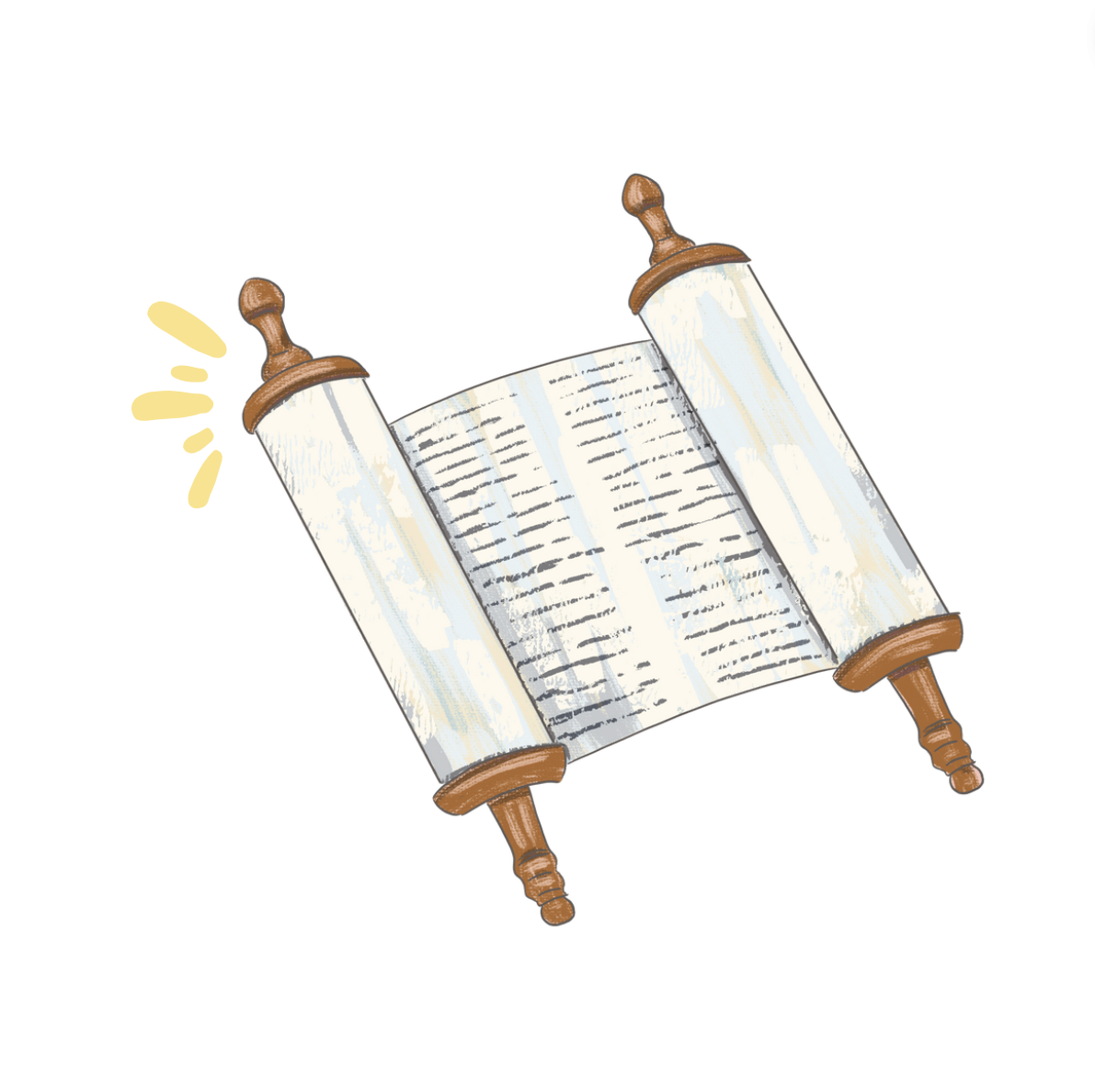As we close the Book of Shemot (Exodus) with Parashat Pekudei this week, we read about the consecration of the Mishkan, the public place where the Israelites will pray, and the role of the Kohen Gadol, the High Priest who will lead worship.
As he prays, the Kohen Gadol wears elaborate garments, the centerpiece of which is the Choshen Mishpat, the Breastplate of Judgement. This Breastplate contains twelve precious stones, one representing each of the twelve Israelite tribes. These stones remind the Kohen Gadol that he approaches God not on his own behalf, but on behalf of all of his people. The symbolism of the Choshen always reminds me of the first few lines of the famous E.E. Cummings poem:
i carry your heart with me(i carry it in
my heart)i am never without it(anywhere
i go you go,my dear;and whatever is done
by only me is your doing,my darling)
The Kohen Gadol carries the heart of the people as he encounters the Divine.
As I journeyed with the incredible cohort of the JCP Solidarity Mission to Israel, I felt as though each person I met, each story I heard, was a precious stone—like the one on the Breastplate of the Kohen Gadol—that I will carry in my heart forever.
The stones on the Breastplate were diverse in color and character. The stones that I gathered, the people we met and the experiences we had, were equally varied, and comprised the rich religious, political, and cultural diversity of Israeli society. Yet they all came together to create a resilient, strong, and robust collective.
I want to share some of their stories with you:
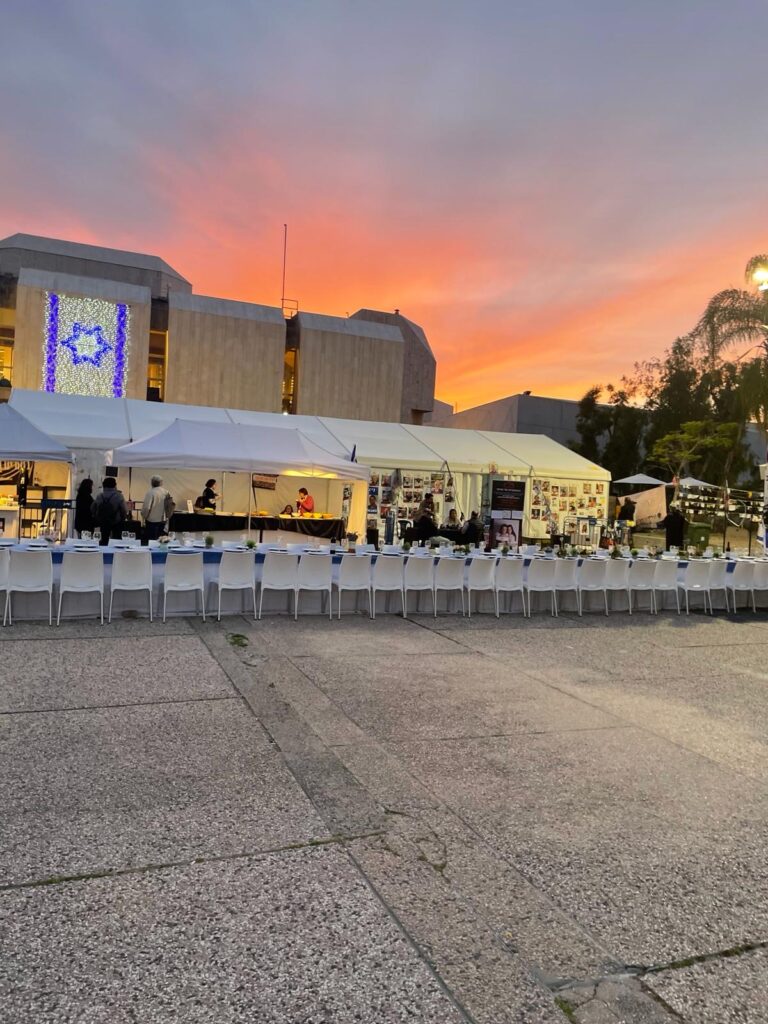
Hostage Square in Tel Aviv
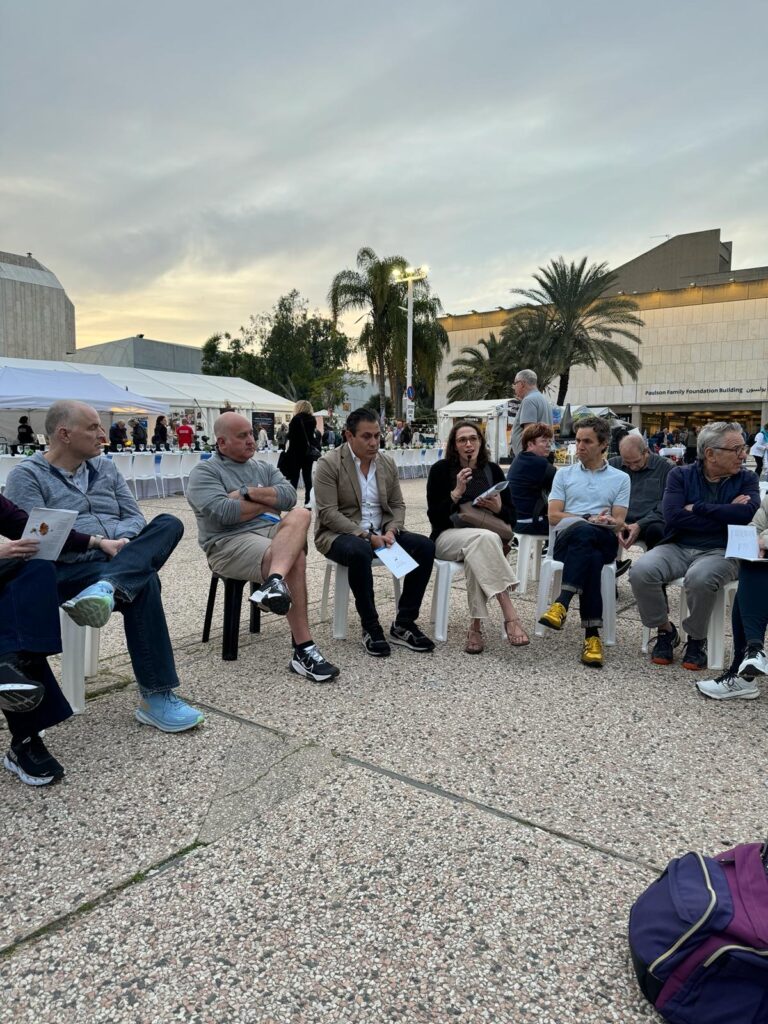
JCP Mission Participants at Hostage Square
On our first evening, we visited the Headquarters of the Hostages and Missing Families Forum to meet with Shelly Shem Tov, mother of Omer Shem Tov (21), who is still being held as a hostage in Gaza. Shelly shared the heartbreaking story of watching Omer’s phone location move into Gaza on October 7. Shelly maintains her strength, even after more than 140 days of her beloved son in captivity. She heard from one of Omer’s friends, who was in captivity with Omer and later released, that Omer tries to keep Shabbat even in Gaza and that he has faith in God. His faith bolsters hers, from afar. Her requests to us? To spread the stories of the hostages, and to keep their plight on the forefront of our minds and hearts so that the world won’t forget them.
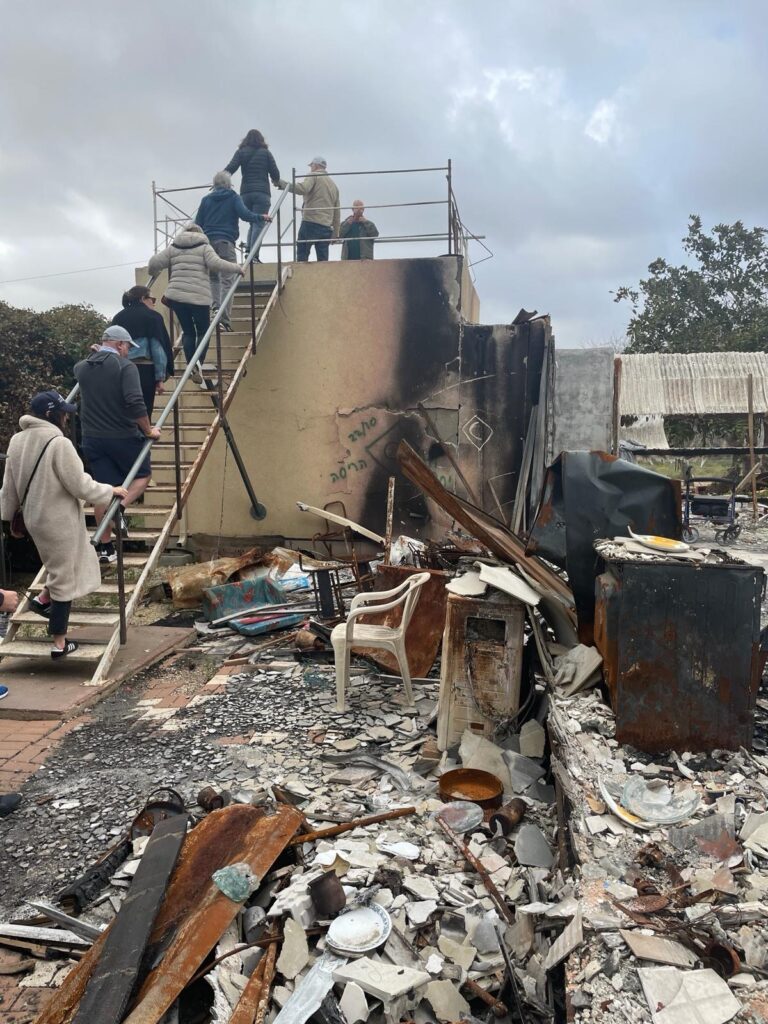
Kibbutz Nir Oz
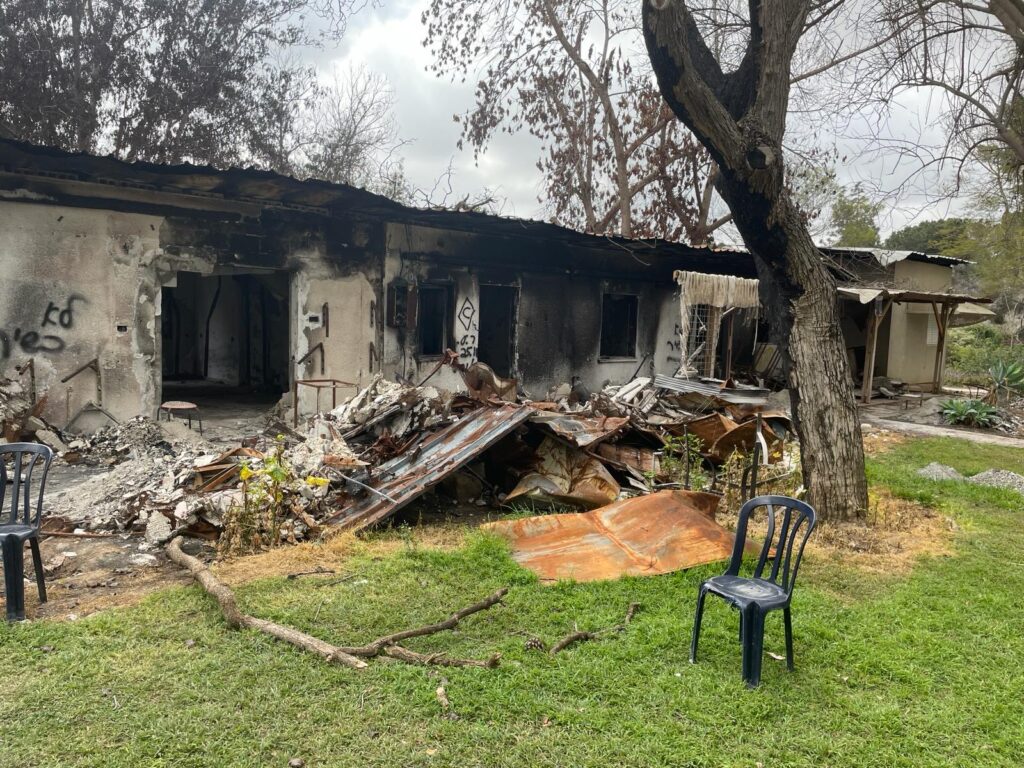
Kibbutz Nir Oz
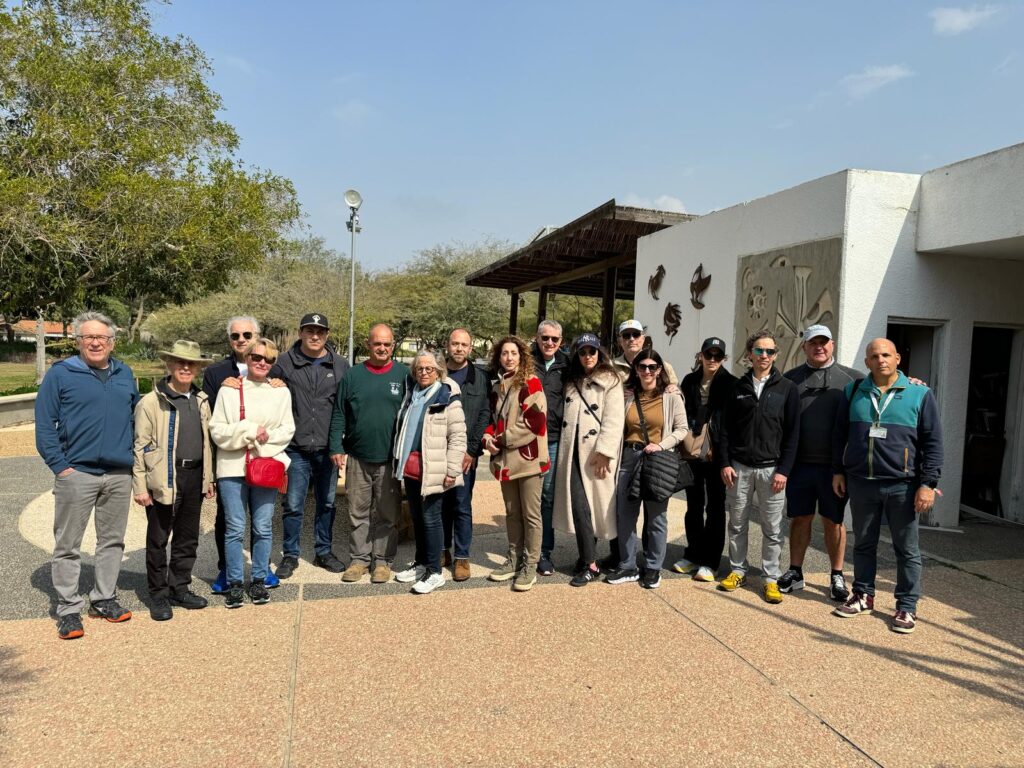
Kibbutz Nir Oz
The next day we visited Kibbutz Nir Oz and were guided on a tour by Yiftach Cohen, who grew up on the kibbutz. We walked from house to house, learning the individual stories of devastation and heroism that took place on October 7. We visited the home of Liat and Aviv Atzili, cousins of JCP community member Ilana Fischer. Liat was kidnapped on October 7 and has thankfully been released, while Aviv was tragically killed during the attack. Liat recently wrote a beautiful and moving essay in the New York Times; her courageous perspective is uplifting. While the pain is overwhelming, I was inspired by the community’s desire to rebuild their beautiful sanctuary. The road will be long and uncertain, but they are determined. And we will be there to help.
While on Kibbutz Nir Oz and the site of the Nova Festival in Re’im, we were only about a mile away from the Gaza border. The devastation wrought upon the communities and cities within Israel that dot the Gaza border was overwhelming to behold. Peace-seeking homes and villages, idyllic places to live and raise families only a few months ago, were now hollow skeletons of houses and piles of wood and ash. While many Israelis we met had different answers about how to ensure that an attack like this will never reoccur (should it be through military means? diplomatic or political ones? some combination?), it was a stark reminder of the impossibility of living with the threat of Hamas terrorism on Israel’s border. And yet, as the earth shook and my heart jumped with the sounds of artillery being launched into Gaza, it was also impossible to escape the knowledge of the fear, hunger, and loss of innocent life that Palestinian civilians have now been facing for so many months. Being so close to the violence was a sobering reminder of the humanitarian and spiritual toll of this dark time in human history.
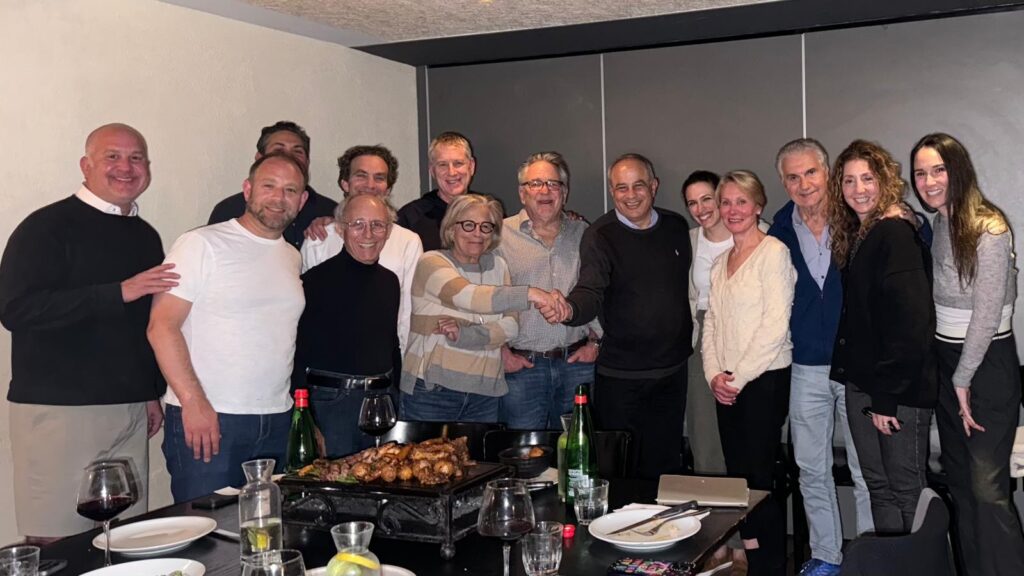
JCP Mission Participants with Mohammad Darawshe, Director of Strategy at Givat Haviva
We also met Orly Erez-Likhovski, Executive Director of the Israel Religious Action Center (IRAC). Orly and her team are committed to making Israel a place where all people—no matter their religion, observance level, or marital or immigration status—are treated with dignity. Though the lives of all Israelis have been impacted by the war, IRAC’s work remains vital in shaping Israeli society and determining what Israel’s character will be after the war is over.
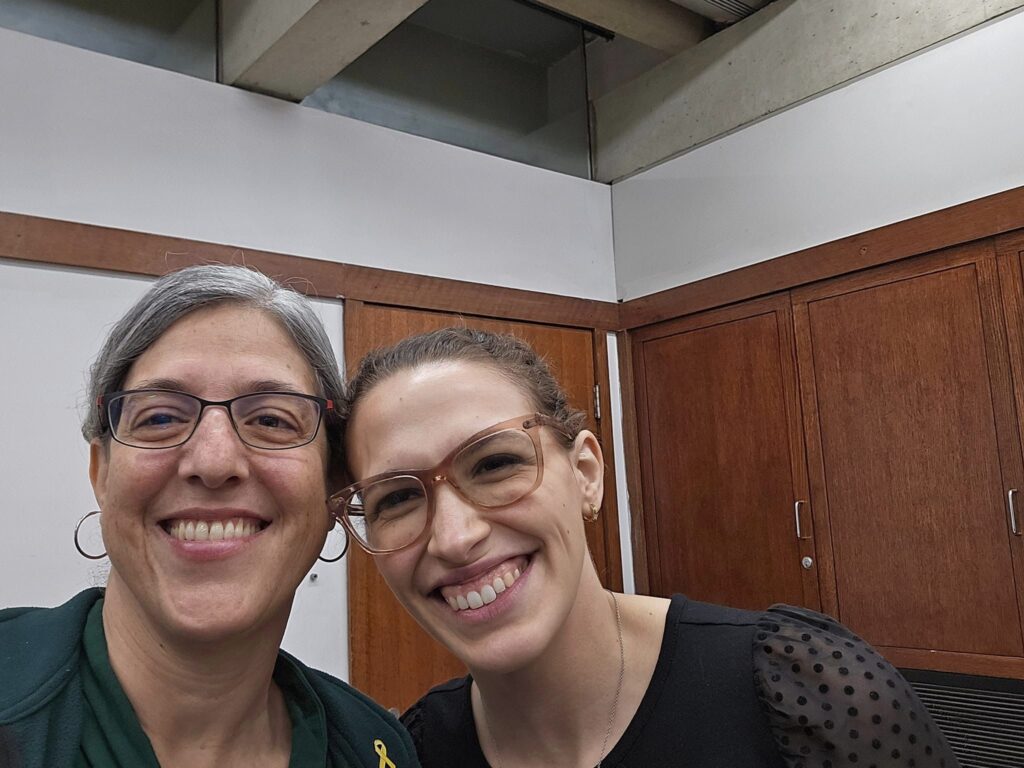
Rabbi Deena and Orly Erez-Likhovski, Executive Director of the Israel Religious Action Center
These are just a few of the precious stones—stories, people, and places—that I am bringing back with me from Israel, that I carry in my heart. I hope you will talk with more JCP Mission participants—they each have their own stories and experiences that they have brought home. I know they will inspire you.
Cummings ends his poem with the following lines. To me, it is a powerful prayer:
here is the deepest secret nobody knows
(here is the root of the root and the bud of the bud
and the sky of the sky of a tree called life; which grows
higher than soul can hope or mind can hide)
and this is the wonder that’s keeping the stars apart
i carry your heart(i carry it in my heart)
I hold the people of Israel close to my heart as I pray for a speedy return of the hostages, for a swift end to the crisis in Gaza, and for resilience, strength, and love to grow higher than the soul can hope or mind can hide.
Shabbat shalom,
Deena
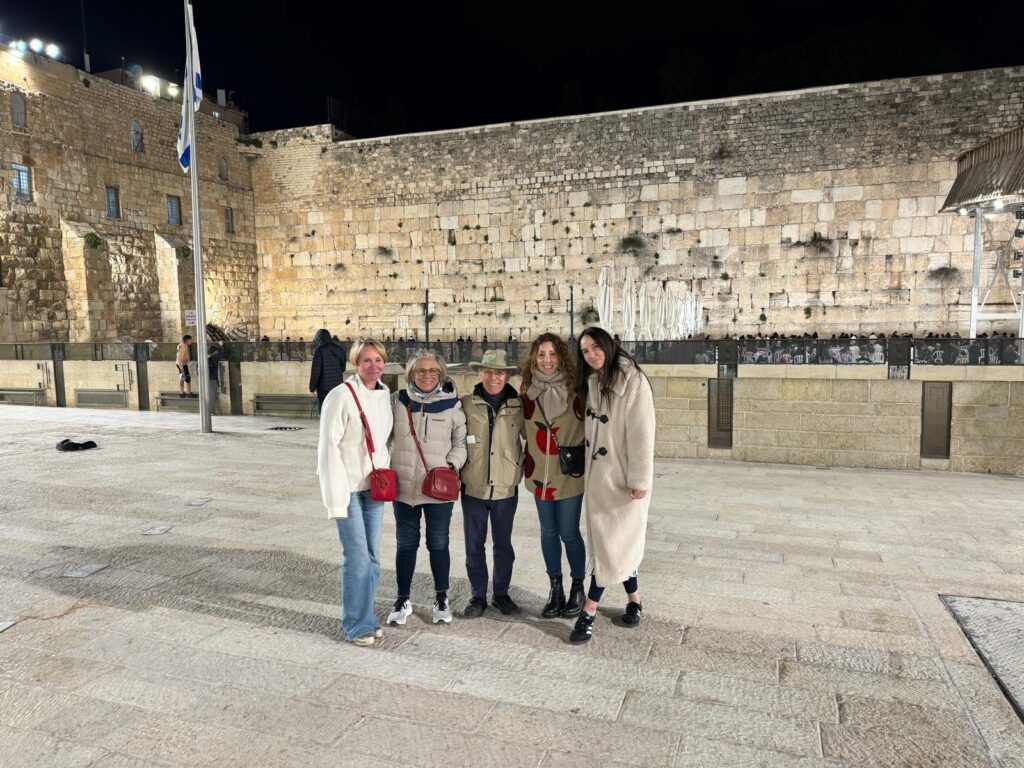
JCP Mission Participants at the Kotel

